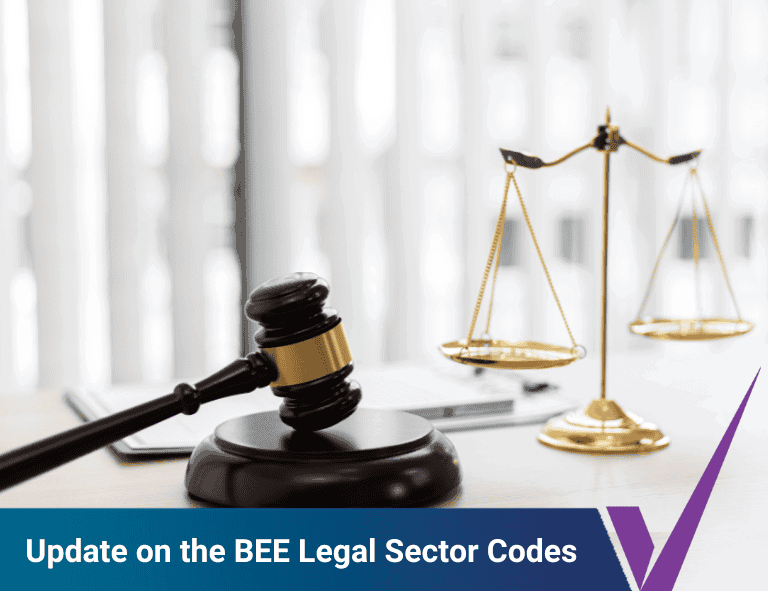On 28 August 2025, the Gauteng High Court ruled against an urgent application brought by the National Employers’ Association of South Africa (NEASA) and Sakeliga. The two organisations had sought to block the implementation of the new sectoral numerical targets introduced under section 15A of the Employment Equity Act (EEA).
Continue readingGovernment Signals Shift in BEE Licensing for the ICT Sector
In a bold move to expand broadband access and attract foreign investment, the South African government has proposed easing B-BBEE licensing requirements for satellite service providers like Elon Musk’s Starlink. The draft policy, issued by Minister of Communications and Digital Technologies Solly Malatsi, aims to align ICT sector licensing regulations with the amended BEE ICT Sector Code.
Currently, ICT licensees must have a 30% equity ownership by historically disadvantaged individuals. However, this requirement has created barriers for multinational companies without local equity partners. The proposed changes would allow alternatives such as Equity Equivalent Investment Programmes (EEIPs)—a shift that reflects global investment norms while still supporting South Africa’s socio-economic goals.
Malatsi emphasised that this is not a political concession, but rather a step toward “regulatory certainty, innovation, and inclusive digital access.” While Parliament has raised concerns, this signals an evolving B-BBEE framework more open to alternative empowerment models, particularly for high-tech sectors.
If adopted, the policy could reshape how multinationals engage with South Africa’s digital economy, balancing transformation with investment attraction.
🔗 Watch this space for updates as this policy develops and how it may set a precedent for other sectors.
📩 Contact us to learn more about how we can support your ICT business.
Contact: Jaco Jacobs
Office: 012 997 0037
E-mail: consult@beeanalyst.co.za
📊 2025 Sectoral Numerical Targets
The new targets aim to ensure equitable representation of designated groups (Black people, women, and persons with disabilities) across all economic sectors and occupational levels. These targets apply to designated employers, and compliance will be assessed over a 5-year period (2025–2030).
Continue reading📢 Employment Equity Regulations 2025
On 10 April 2025, the Department of Employment and Labour officially repealed the 2014 Employment Equity Regulations and introduced the Employment Equity Regulations, 2025.
Continue readingPublic Input Invited on the Draft Transformation Fund Concept
The Minister of Trade, Industry and Competition, Mr. Parks Tau, has released the Draft Transformation Fund Concept document for public commentary, inviting members of the public and interested parties to submit their inputs between 20th March 2025 and 7th May 2025.
The proposed Transformation Fund is designed to aggregate Enterprise and Supplier Development (ESD) funds, aiming to drive economic transformation and enhance the sustainability of black-owned enterprises. Minister Tau emphasizes the opportunity for government and the private sector to work together to increase the participation of black-owned and managed businesses, particularly small, medium, and micro enterprises (SMMEs) and cooperatives, by providing financial and non-financial support in alignment with the Broad-Based Black Economic Empowerment (B-BBEE) Act.
Key Objectives of the Transformation Fund:
- Promote economic transformation and meaningful participation of black-owned businesses.
- Improve access to funding for black-owned and controlled enterprises.
- Empower black-owned businesses to integrate into key sector value chains.
- Mobilize financial resources from both the private and public sectors using B-BBEE legislation.
The fund is expected to aggregate R100 billion over the term of the current administration through a joint government-private sector effort. This initiative aligns with Vision 2030 of the National Development Plan, which seeks to eliminate poverty and reduce inequality.
No Additional B-BBEE Requirements for Businesses
The Minister has clarified that no additional requirements will be imposed on entities beyond the existing B-BBEE policies. Businesses are already expected to contribute 3% of their Net Profit After Tax (NPAT) towards ESD initiatives, which focus on developing black suppliers, industrialists, and SMMEs. The Transformation Fund will enhance coordination and impact, ensuring that ESD efforts lead to long-term growth and sustainability for black-owned enterprises.
Focus on Women, Youth, and People with Disabilities
Special attention will be given to businesses owned by women, youth, and persons with disabilities, particularly those based in rural and township areas. Historically, these groups have faced systemic barriers to economic participation, and the fund seeks to address these inequalities by facilitating access to opportunities in key sectors like manufacturing, agriculture, and tourism.
Governance and Oversight
To ensure accountability, transparency, and efficiency, a Special Purpose Vehicle (SPV) will be established to manage the fund, reporting to an Oversight Committee and a skilled board. This governance framework will ensure that both government and private sector stakeholders are held accountable for the effective management of the fund.
Have Your Say
Stakeholder engagement sessions will be held during the 30-day public commentary period to raise awareness and gather further input.
Download the Draft Transformation Fund Concept Document.
Members of the public and interested parties are encouraged to submit their comments and suggestions via email to transformationfund@thedtic.gov.za.
This is a pivotal moment to contribute to shaping South Africa’s economic transformation.
Share your insights and be part of the conversation!
Update on the B-BBEE Legal Sector Codes ⚖️
The gazetting of the BEE Legal Sector Codes has stirred considerable debate within the legal community. NRFSA has initiated a two-part application in the High Court, targeting the Legal Practice Council, the Department of Trade, Industry and Competition (dtic), and the Minister of Justice and Constitutional Development.
Continue readingEmployment Equity Amendment Act: Key Changes Coming in January 2025
The Employment Equity Amendment Act (EEA) is set to be officially enacted on 1 January 2025. These amendments will significantly impact how businesses across South Africa manage employment equity and comply with transformation goals.
Here’s a summary of the key changes and what they mean for your business:
- Redefined “Designated Employer” Status
Companies with fewer than 50 employees will no longer be classified as designated employers. This means they will not be required to comply with Chapter 3 of the Act, which outlines affirmative action measures.
However, businesses in this category will still need to:
- Confirm their status by demonstrating their employee count.
- Comply with Chapter 2, which focuses on eliminating unfair discrimination and promoting equal opportunities within the workplace.
If you have fewer than 50 employees, it’s essential to ensure your company maintains compliance with these provisions, even though your designation status will change.
- Five-Year Sectoral Targets
One of the most notable changes is the introduction of sector-specific targets for designated employers. These targets will span five years and will apply across key occupational levels. Employers will need to align their employment equity plans with sectoral targets. It’s important to start assessing your workforce and setting goals accordingly. Companies can also choose to set targets for Semi-Skilled and Unskilled levels, though these are not mandatory.
2024 EE Reporting Obligations
While these changes will take effect in 2025, it’s important to note that all designated employers must still submit their Employment Equity reports for the 2024 reporting period in line with the current regulations. The 2024 reporting cycle will remain under the existing compliance framework, so make sure your reports are submitted in accordance with the current rules before the end of the year.
What Does This Mean for Your Business?
As these amendments are set to reshape the employment equity landscape, now is the time to start preparing. The changes will require companies to be more proactive in aligning their workforce with sectoral targets, ensuring compliance with anti-discrimination policies, and obtaining certification for doing business with the state.
Our team is closely monitoring these developments and will keep you informed as new regulations and guidelines are released.
Stay Tuned for More Updates
As we receive more information we will share key updates and provide actionable advice on how your business can remain compliant. Our goal is to make this transition as smooth and effective as possible for you.
Legal Sector Code Gets Green Light
Trade, Industry, and Competition Minister Parks Tau has given the green light to the Legal Sector Code under section 9(1) of the B-BBEE Act, which aims to expedite transformation within the legal sector.
“This administration is dedicated to speeding up transformation, as guided by the preamble of the South African Constitution, which underscores the need to address past injustices. This commitment is reflected in the Government of National Unity’s (GNU) statement of intent,” Tau stated.
The process has paved the way for the sector to achieve its Broad-based Black Economic Empowerment (B-BBEE) objectives of the following:
- an ownership target of 50% and black women ownership of 25% over 5 years.
- a management control (executive and board participation) target of 50% representation of black practitioners and a target of 25% for black women practitioners, particularly as equity partners and associates.
- a skills development target of 3.5% expenditure on training programmes for black candidates. The aim is also to ensure training in specialised skills for black legal practitioners, candidate legal practitioners, candidate legal practitioners and black junior advocates within the following designated categories: black women, black youth, black people with disabilities and black people from rural areas.
- a procurement target of 60% by the private sector, and there is a target of 80 % to be achieved through the specialised procurement scorecard applicable to the public sector. This will ensure fair and equitable access to specialised areas of law and complex matters when the state procures legal services from black Legal Sector Measured Entities (LSMEs) and ensure the sustainability of LSMEs.
With the recent approval of the Legal Sector Code, legal professionals and firms must stay ahead of these transformative changes. Our team is ready to assist you in understanding and implementing the new regulations to ensure your practice remains compliant and competitive.
Contact us at consult@beeanalyst.co.za to schedule a consultation.
ICT Council Notification
Reminder: ICT Council 2023/24 Annual Fees Due by December 1, 2024
This is a friendly reminder that your annual fees for the ICT Council 2023/24 are due by December 1, 2024. Please confirm your ICT suppliers’ contributions to the ICT Council Private Contribution Model.
The Private Sector Contribution Model helps determine the financial contributions of ICT Measured Entities to support the ICT Council’s operations. These contributions are based on the annual turnover as reflected in your B-BBEE verification certificate or B-BBEE Sworn Affidavit under the 2016 Amended ICT Sector Code.
Note that these contributions cannot be claimed for B-BBEE points under the 2016 Amended ICT Sector Code.
After making your payment, email the proof to ictcouncil@ictsectorcouncil.org.za. We will send you a proof of contribution letter to the same email address.
For any questions, please contact the Acting Secretariat, Mrs Stefani Naidoo, at ictcouncil@ictsectorcouncil.org.za.
Read the notification here and see the bank confirmation letter here.
Important Update Regarding the Legal Sector Code
The gazetting of the Legal Sector Code is now imminent. Let’s examine the concerns that were discussed earlier.
Continue reading








